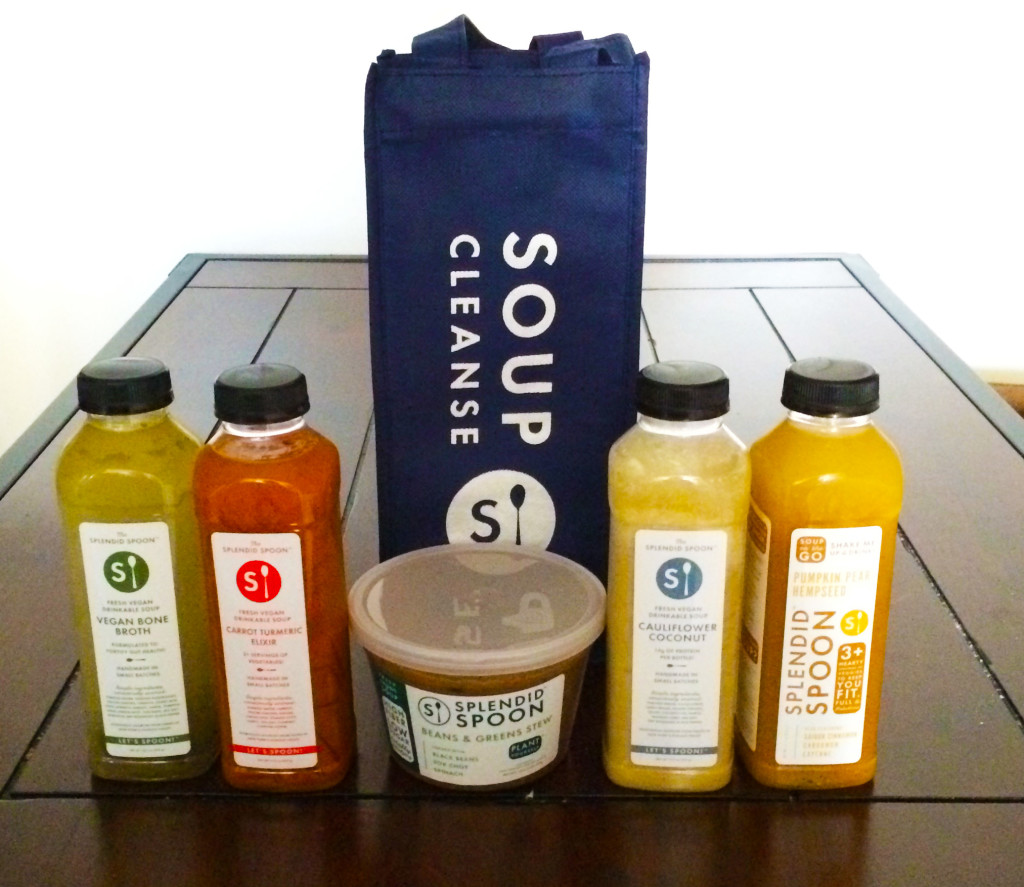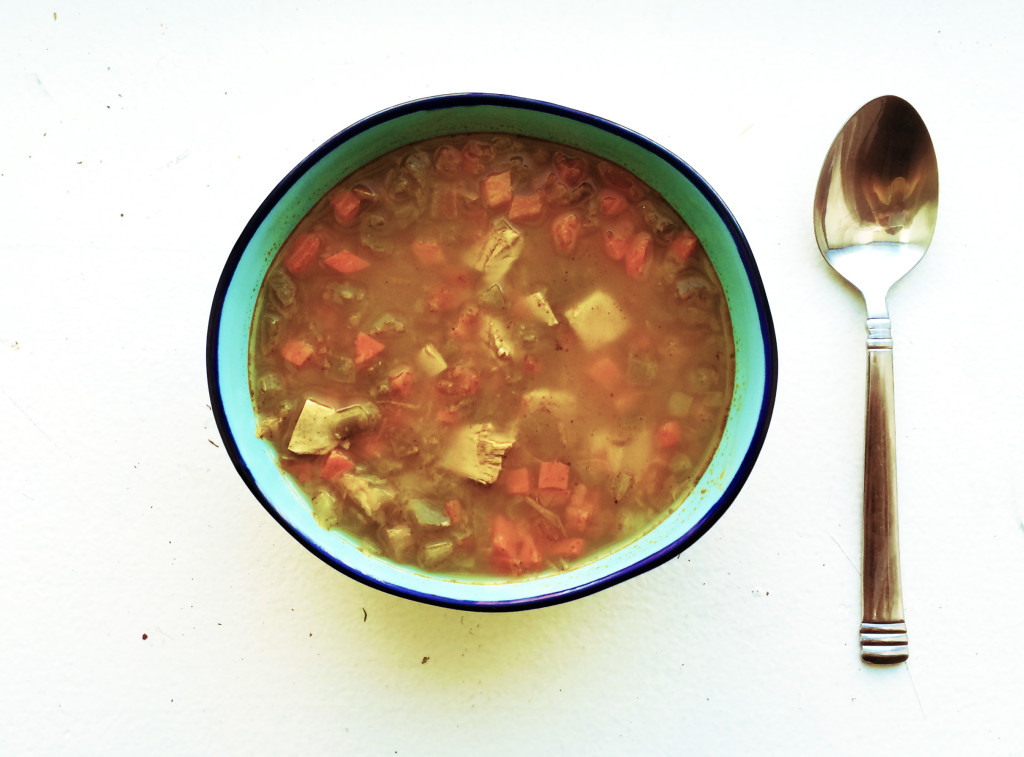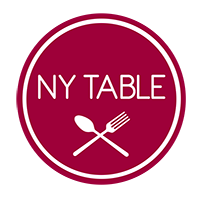
One day’s worth of cleanse soups from Splendid Spoon. Photo: Gema Flores.
About three years ago, Nicole Chaszar was bicycling around Brooklyn looking for a restaurant that would let her use its kitchen to develop an idea she had: A soup delivery company that would provide what she claimed was a new type of healthy cleanse.
Today, the Bushwick-based Splendid Spoon offers a range of products that are vegan and gluten- , preservative- and GMO free, made from ingredients sourced within a 200-mile radius of New York City. The cleanses start with a one-day set of five liquid meals for $55; there are also soups meant to be used as individual meal replacements. Chaszar claims that the program will improve a customer’s health because it combines intermittent fasting with increased vegetable uptake, and sells the frozen soups on her website, splendidspoon.com, and through online grocers including Fresh Direct, Good Eggs and Farm to People — and a growing number of people seem to believe her.
She says that sales have tripled annually since 2013, with 60 percent of her customers in New York. She’s not the only one: In Los Angeles, there are Soupelina—founded by Elina Fuhrman in 2013 —and Soupure —launched in 2014 by Angela Blatteis and Vivienne Bella. In November 2014, Alison Velazquez started her soup business, Soupology, in Chicago.
“We began selling 25 bottles a week, about 1,000 bottles week by mid-2015 and finished the year at capacity at 1,700 bottles a week,” says Blatteis. “I think people are just starting to understand the idea of souping, and sales will only grow as people embrace it,” says Velasquez.
According to Mintel Group Ltd, a privately owned market research firm, more than half of consumers say that they are motivated to eat healthy foods by the possibility of a longer life. While most people consider a well-rounded diet to be the best solution, millennials — people from 25 to 35 — are interested in products and special regimens.
Not everyone sees the health benefits to this kind of regimen. Lauren Waine, who has a PhD in clinical psychology and specializes in the treatment of eating disorders at Eating Disorder Resource Center (EDRC) in Manhattan, thinks that the benefits of a cleanse might be more emotional than physical, because a restrictive diet offers a sense of control. “If a person can focus on the rules of the diet, whatever they are, rather than focusing on things that are more difficult to control, it can help them to feel successful,” says Waine. She thinks that it appeals to those concerned with notions of perfectionism. “People can feel that they are doing the right thing following a trendy diet,” says Waine, but that continued dieting can become a kind of eating disorder, with a negative impact on health.

Lime pepper soup, a meal replacement from Splendid Spoon. Photo: Gema Flores.
Bonnie Taub-Dix is the owner of BTD Nutrition Consultants, LLC in New York with offices in Long Island City and New York City. As a nutrition consultant to food companies who also counsels individuals, she has collaborated on designing a program for the Food and Drug Administration regarding food labeling. Taub-Dix is skeptical of any diet that emphasizes particular foods or recommends avoiding others.
“Diet should be composed of a lot of different food and when you have more variety that is when you have a greater chance of getting a little bit of everything,” says Taub-Dix. She doesn’t like the idea of cleansing. “We have a liver to detox our bodies; we don’t need to detox it with food,” she says. Still, she agrees that incorporating soup on our diet can have some benefits. By eating soup before a meal we can cut our appetite because we feel less hungry, so it might be a good way to eat less calories. She also considers soup a good way to incorporate vegetables for people who otherwise don’t eat enough of them.
For Chaszar, the company is something of a personal mission that began with early memories of her mother’s garden in Massachusetts. She took cooking classes at night while she held down a job, worked in two restaurants —as line cook— and ate poorly because she had no time: granola bars or had smoothies instead of a meal, frequent meals out, a lot of wine. “It was strange that even though eating well and being healthy is easy, it was difficult to incorporate that into my lifestyle,” says Chaszar. She felt that with her culinary training, and her studies in nutrition and metabolism in college, she had the resources to find a solution, and when she thought about food that made her feel good, she thought about soup. That was where her business began.
Chaszar started to look for a kitchen where she could run her business and found out that people from Ovenly bakery were leaving the Brooklyn kitchen where they cooked, so she took over their spot, even though it meant waking up at four in the morning to make soup before she went to her regular job. When she finally decided to devote herself to soup full-time, she was a bit frightened. “There is something scary about believing in something that no ones see and doing it anyway,” says Chaszar. She officially launched the business in March 2013.
Despite the benefits of souping, Taub-Dix still recommends a balanced diet rather than a restrictive one. And if someone chooses a regimen, Taub-Dix, also the author of the book “Read It Before You Eat It,” urges consumers to research claims and decide for themselves.

Your Comments